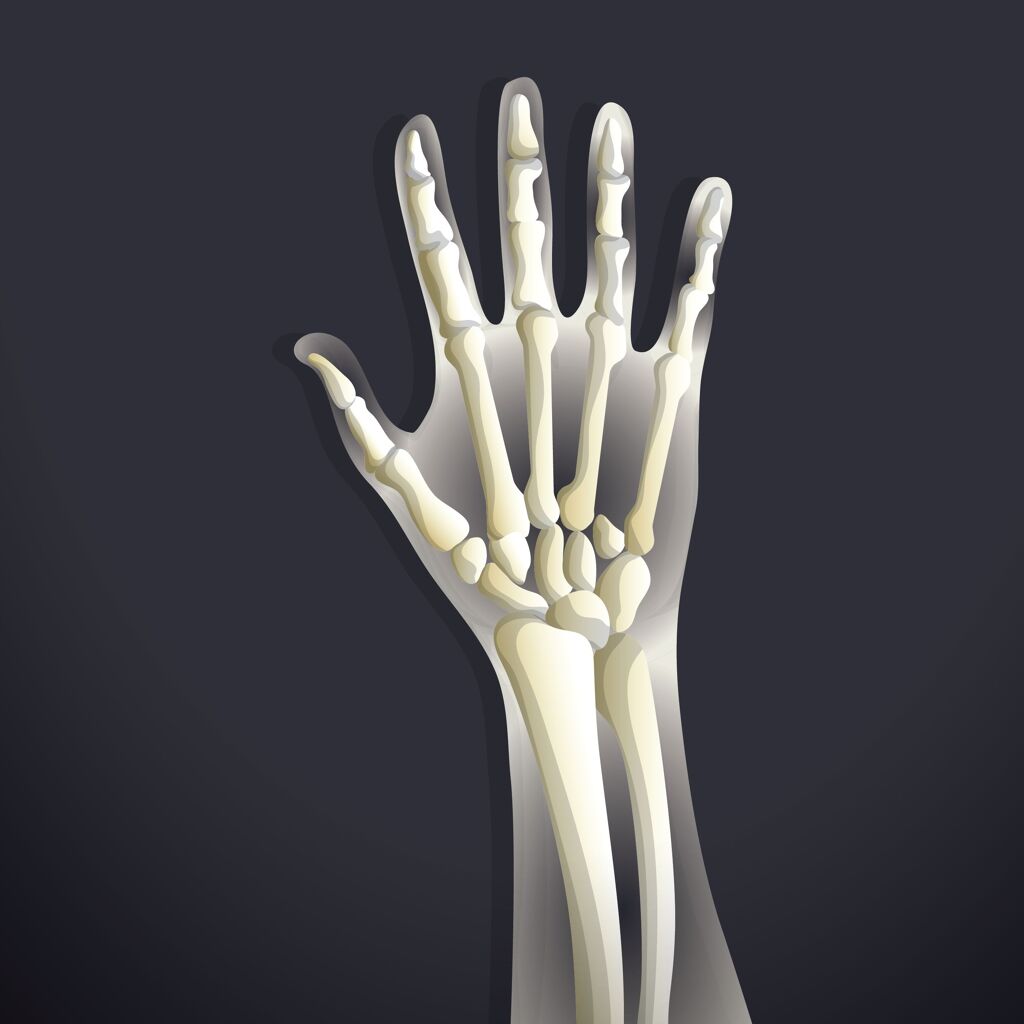Infections and Mental Health

Did you know that toxins like Lyme, Bartonella, mold and viruses can contribute to depression, anxiety, poor memory, mood swings, poor attention and other mental health issues?
Microbes can seriously affect and even damage mental health. Increasingly, research is showing that microbes such as the Borrelia bacterium that causes Lyme Disease, mold toxins or a virus like Epstein-Barr can all be major root causes of mental illness.
In this blog, we will review some specific microbes which affect mental health:
- You will see how symptoms of infection can overlap with mental disorders
- You will learn precisely how these microbes affect mental health and brain function
In future blogs, we will cover the most important lab tests for toxins and infections. We will also look at treatment strategies used in our Functional Medicine Clinic that can help address these microbes and resolve mental health issues.
What is A Mental Health Disorder?
Mental health disorders affect mood, thinking, state of mind, emotional regulation or behavior. Many people may temporarily experience a mental health issue at some point in their lives. A mental health concern becomes a mental illness when symptoms are ongoing, cause frequent stress and affect the person’s ability to function. A mental illness can cause problems in daily life, at work or in relationships.
The different types of mental illness include:
- Mood disorders such as depression or bipolar disorder
- Anxiety and panic disorders
- Personality disorders such as antisocial or narcissistic personality disorders
- Psychotic disorders such as schizophrenia
- Eating disorders such as anorexia or bulimia
- Trauma-related disorders such as PTSD
- Substance abuse disorders such as alcoholism
Anxiety and depression are the most well-known mental health conditions. Many other minor mood imbalances do not get diagnosed as a mental health disorder. Many people experience periodic symptoms of depression and anxiety without having a mental health disorder.
Mental illness has reached epidemic proportions:
- 1 in every 8 people in the world live with a mental disorder (GBD, 2022)
- 1 in 100 deaths worldwide is suicide (WHO, 2021)
- 20%, or 1 in 5 people, in the US struggle with a mental illness (NIMH, 2022)
- The situation with adolescents in the US is more severe. The National Comorbidity Adolescent Supplement (NCS-A, 2010) says that 49.5% of adolescents had at least one mental disorder and 22.2% of those were severely impaired as a result.
- If we used less strict criteria to include mental health problems not quite at the level of diagnosable mental illness, a majority of the US population would qualify as struggling with mental health.
- Current treatments are not adequate for the scale of the problem.
The Symptoms of Mental Illness and Chronic Infection
There is often an overlap in symptoms between a chronic infection and mental illness. If we compare the symptoms of both, we will see they are strikingly similar.
Common Symptoms of Mental Illness
- Feeling sad or down
- Confused thinking or reduced ability to concentrate
- Excessive fears or worries, extreme feelings of guilt
- Extreme mood changes with highs and lows
- Withdrawal from friends and activities
- Significant fatigue, low energy or problems sleeping
- Detachment from reality or delusions, paranoia, hallucinations
- Inability to cope with daily problems or stress
- Difficulty understanding and relating to situations and people
- Problems with alcohol or other substance abuse
- Major changes in eating habits
- Sex drive changes
- Excessive anger, hostility or violence
- Suicidal thinking
- Unexplained and/or specific aches and pains
Common Symptoms of Chronic Infection
Symptoms of certain infections are similar (Canli, 2014)7. Lyme, co-infections, mold and viruses may have significant symptom overlap with mental illness.
- Difficulty concentrating, confusion or cognitive issues including brain fog
- Inability to function, unable to handle stress
- Insomnia and fatigue
- Various types of pain
- Loss of appetite and weight loss
- Hallucinations or suicidal thoughts
- Severe headaches
- Irregular heartbeat
- Dizziness or shortness of breath
Mental health symptoms can result from mold exposure, Lyme Disease, other toxins and/ or infections. Mental health challenges may also cause or worsen infections in the body. This can affect hormonal, nervous, gastrointestinal, detoxification and methylation systems.
To heal from mental illness and chronic disease, we need to identify and address the root causes.
To Read About Blog Topic, Scroll Down
Want To Work With Our Clinic?
Do you have a chronic or mystery illness that no one has been able to help you with? Are you simply wanting to re-connect with a healthier version of yourself? It’s Time To Finally Feel Better!
What is the Cause of Mental Illness?
The Serotonin and Depression Paradigm is Out-of-Date
Old research dating back to the 1960’s says that low serotonin is the cause of depression. A tryptophan-depleted diet was thought to explain depression. The body converts tryptophan into serotonin. It was thought that depression was due to a lack of serotonin, which was only based on a correlative link to depression. But correlation is not causation.
An entire drug class, called Selective Serotonin Reuptake Inhibitors (SSRI), was developed as the solution to depression. These antidepressants were designed to increase serotonin uptake, based on the serotonin theory of depression.
But now, a recent research review published in July of 2022, found that there is “no consistent evidence of there being an association between serotonin and depression” and that there is “no support for the hypothesis that depression is caused by lowered serotonin activity or concentrations” (Moncrieff et. al., 2022).
In fact, long-term use of SSRI medications may actually lower serotonin levels in the body!
If it’s not due to low serotonin, what does cause depression?
Could Microbes & Infections be the Cause of Mental Illness?
Post-infectious onset of mental illness has been observed for many decades. Around 1998, observations of children developing mental health disorders in the weeks or months after strep infection led researchers to look for a possible connection. Case studies of dramatic and sudden onset of OCD and tic disorders in children were seen at the US Institute of Mental Health.
This indicated there is a link between some infections (not just strep) and antibodies against brain tissue.
The immune system fights off infections. In some infections, the protein structure of the infectious organism may look a lot like brain tissue. So, the immune system inadvertently starts to attack brain structures in the process. If the infection becomes chronic or the autoimmune process continues, changes to brain chemistry and neuroinflammation that result from the brain autoimmunity can cause the onset of mental health disorders. Many types of infections can be linked to brain autoimmunity.
Dr Miles has first-hand experience with infections as a cause of mental health disorders in the Medicine with Heart clinic. In fact, Dr Miles discovered the connection by accident. He commonly treats people with mold illness, Lyme Disease, Bartonella, Epstein-Barr Virus and other chronic infections. To Dr Miles surprise, treating infections and toxins from mold led many people to report significant improvements in mental health. Severe anxiety, debilitating depression, intense brain fog, food sensitivities and other symptoms were improved and sometimes completely reversed by treating infections.
Which Infections Can Cause Mental Illness?
Strep
Neuropsychiatric symptoms can appear after strep throat. These include obsessive-compulsive disorder (OCD), tic disorders, eating disorders, anxiety, depression, insomnia, motor or sensory issues and increasing food sensitivities. Symptoms appear after a delay of weeks or even months, as antibodies against brain tissue take time to cause structural damage and neuroinflammation. This can then cause mental health symptoms. The strep bacteria can become chronic and systemic.
Lyme Disease
Lyme Disease is a bacterial infection, caused by the bacterium Borrelia burgdorferi. Borrelia is spread by a bite from an infected insect, typically the black-legged tick. We have written many blogs on Lyme Disease, starting with What is Lyme Disease?
Lyme Disease is a complex inflammatory disease with both acute and potentially chronic symptoms. Symptoms include a possible “bullseye” rash, headache, fever and chills, muscle and joint aches and swollen lymph nodes. Lyme Disease can possibly develop into more serious symptoms such as arthritis, neurological or cardiac issues.
Lyme Disease is the great mimicker; it can look like dozens of other illnesses, and is not completely understood in the medical world.
Lyme Co-Infections
A Lyme Disease co-infection occurs when someone is infected with Lyme and another disease transmitted by the same tick. A tick can carry multiple disease-causing microbes or co-infections in addition to Borrelia. Once bitten, it is possible to contract Lyme and one or even more co-infections simultaneously.
Co-infections are common, especially in people with chronic Lyme. This is likely why people with chronic Lyme have such severe symptoms.
Co-infections can also be stand-alone. You could be infected with Babesia or Bartonella, for example, without getting Lyme. People may get a co-infection with two pathogens, or even three, although it is rare to have a three-pathogen infection (Kumar M, 2019)
Potential Lyme co-infections are Bartonella, Anaplasmosis, Babesiosis, Powassan virus, Borrelia miyamotoi (relapsing fever-like illness) and Ehrlichia muris (which causes ehrlichiosis) (Eisen, 2018).
Mold Toxins
Mold can grow in moist and water-damaged buildings. Mold toxins, or mycotoxins, are biotoxins that can accumulate in the body after mold exposure. They can cause mild to serious illness.
- The Environmental Protection Agency (EPA) estimates that 25-50% of homes have damp conditions that can lead to mold growth. This may even be a conservative estimate.
- Other sources say that approximately 50% of buildings are water damaged and have not been remediated properly.
- Approx. 1 in 4 people have a genetic abnormality which prevents mold and other toxins from being detoxified and properly removed from the body.
- For these people, even a single exposure to mold can cause mold toxins to circulate in the body, causing symptoms like fatigue, pain, migraines or headaches and others.
- Mold is a significant and under-examined issue that contributes to chronic inflammation and illness.
Viral Infections
A virus can cause illness, inflammation, immune problems and mental health issues. Viruses like Epstein-Barr, herpes simplex virus, chicken pox / shingles and now COVID-19 are common. Everyone gets a viral infection at some time. Most people typically recover with little effect on their lives. But viruses never leave the body; they just become dormant. They can potentially reactivate and become a chronic issue causing symptoms. A virus can also lead to mental health issues in the weeks or months after infection.
Bacterial infections typically are fully eliminated from the body and completely resolve. Exceptions to this rule are Lyme and Bartonella. A virus, Borrelia or Bartonella can be re-activated in the body at any time.
Stress is a common trigger for reactivation. The immune system gets overwhelmed and the virus can become active again. Constant stress can leave the immune system too weak to fight the virus off. It can potentially develop into a chronic underlying viral infection. Other bacterial/ parasitic infections, mold toxins or toxic metals can all trigger latent viral infections to reactivate. Other viruses like COVID-19 may reactivate dormant viruses like Epstein-Barr Virus.
Chronic viral infections can cause:
- Unexplained symptoms and flare-ups
- Inflammation and pain
- Fatigue and/or insomnia
- Autoantibodies that can lead to autoimmunity
- Brain antibodies that can lead to neuroinflammation and mental health issues
What are the Effects of Chronic Infection?
Chronic infections, autoimmunity, chronic inflammation and psychosocial stress can affect mental health, possibly triggering schizophrenia, autism spectrum disorder, bipolar disorder and depression (Pape K, 2019).
Chronic infections can worsen the severity of Lyme Disease or mold illness. Or Lyme or mold illness can worsen infections already present in the body. What came first can be difficult to identify. Lyme, mold and chronic infections may induce brain autoimmunity, causing or worsening neuroinflammation.
Some infections produce toxins. The cell walls of gram-negative bacteria contain lipopolysaccharides (LPS). LPS are an endotoxin and raise pro-inflammatory cytokines. These toxins worsen the inflammatory process and can contribute to health issues.
- One study found that any history of hospitalization for infection is associated with a 62% increased risk of later developing a mood disorder, such as depression and bipolar disorder (Benros ME, 2013)6
- Autoimmunity, a condition where the immune system attacks itself, can be triggered by infection and may contribute to mental disorders. A history of an autoimmune disorder increases the risk of a future mood disorder by 45% (Benros ME, 2013).6
Unfortunately, infections from bacteria (Lyme & co-infections), viruses (EBV, herpes simplex, COVID-19 & others) or biotoxins (mold) can be overlooked by doctors. If this happens, symptoms will persist because the infection is not treated. This can quickly become a chronic problem affecting overall health.
Chronic underlying infection is one of the first potential root causes we look for in our Functional Medicine clinic, alongside gut dysregulation, hormonal imbalance, nutrient deficiencies, detoxification issues and others.
How exactly does Infection Cause Mental Illness? (Pape K, 2019):
- Pro-inflammatory cytokines of the immune system are part of the ‘cytokine theory of depression’. Inflammatory proteins, or cytokines, circulate in the bloodstream and cross the blood brain barrier. This leads to neuroinflammation. Source(s) of the inflammatory cytokines can be infections and toxins.
- Molecular mimicry (which happens in autoimmunity)
- Autoantibodies (also involved in autoimmunity)
- Self-reactive T-cells (immune system cells)
- Disturbance to the blood-brain barrier (which protects the brain from toxins)
- Microglial cells are immune cells which make up 10% of cells in the brain (Augusto-Oliveira M, 2019). They can be activated and cause inflammation in the brain. Activated microglia cells and neuroinflammation can cause depressive symptoms.
- Neuroinflammation negatively affects brain health. Depression, anxiety, autism, dementia, schizophrenia, ADD, ALS, MS, Alzheimer’s and Parkinson’s are all inflammatory diseases of the brain.
What are Other Causes of Systemic Inflammation?
Other things, apart from infections and toxins, can cause inflammatory cytokines, neuroinflammation and systemic inflammation:
- Some foods and nutrient imbalances may increase inflammation. A key one is excessive omega-6 polyunsaturated fatty acids from industrial seed oils like corn oil, soy oil, peanut oil, sunflower oil, safflower oil, etc. These are pro-inflammatory. This is especially true if omega-3 (EPA and DHA from fish) is too low.
- Gut dysbiosis is linked to depression and inflammation. The vagal nerve connection between the brain and gut can sense and send gut bacteria signals to the brain and induce brain disorders including depression. Equally, intestinal permeability, or leaky gut, can cause gram-negative bacteria to circulate into the blood stream and cause systemic inflammation.
Summary
- Mental health issues in the US are on the rise. Current medical solutions are not effective.
- The symptoms of mental health illness and illness from chronic infection ate strikingly similar. This is because an infection – from Lyme, mold, a Lyme co-infection or a virus – can trigger a mental illness.
- The infection can cause brain autoimmunity, neuroinflammation and other effects that can lead to mental illness, like depression, anxiety and others.
- In our Medicine with Heart clinic, we systematically check for infection as a root cause of illness and help people to improve both physical and mental health issues using a Functional Medicine approach to treatment.
In our clinic, we are experts at identifying root causes of chronic and mental illnesses. We regularly diagnose and treat hard-to-diagnose conditions like mold illness, chronic Lyme Disease, Lyme co-infections and others. Once treated, we see vast improvements in our patients mental and overall health. In addition, we are Lyme-literate doctors. We help people to address the root causes of illness and improve their health, with both natural and pharmaceutical approaches, depending on the individual case.
** Please stay tuned for our next Blog! **
To Read About Blog Topic, Scroll Down
Want To Work With Our Clinic?
Do you have a chronic or mystery illness that no one has been able to help you with? Are you simply wanting to re-connect with a healthier version of yourself? It’s Time To Finally Feel Better!
References:
- Institute of Health Metrics and Evaluation. Global Health Data Exchange (GHDx), (https://vizhub.healthdata.org/gbd-results/, accessed 5 Feb 2023).
- Suicide worldwide in 2019: global health estimates. Geneva: World Health Organization; 2021. Licence: CC BY-NC-SA 3.0 IGO.
- Substance Abuse and Mental Health Services Administration. (2021). Key substance use and mental health indicators in the United States: Results from the 2020 National Survey on Drug Use and Health (HHS Publication No. PEP21-07-01-003, NSDUH Series H-56). Rockville, MD: Center for Behavioral Health Statistics and Quality, Substance Abuse and Mental Health Services Administration. Retrieved from https://www.samhsa.gov/data/report/2020-nsduh-annual-national-report.
- Merikangas KR, He JP, Burstein M, et al. Lifetime prevalence of mental disorders in U.S. adolescents: results from the National Comorbidity Survey Replication–Adolescent Supplement (NCS-A). J Am Acad Child Adolesc Psychiatry. 2010;49(10):980-989. doi:10.1016/j.jaac.2010.05.017
- Moncrieff J, Cooper RE, Stockmann T, Amendola S, Hengartner MP, Horowitz MA. The serotonin theory of depression: a systematic umbrella review of the evidence [published online ahead of print, 2022 Jul 20]. Mol Psychiatry. 2022;10.1038/s41380-022-01661-0. doi:10.1038/s41380-022-01661-0
- Pape K, Tamouza R, Leboyer M, Zipp F. Immunoneuropsychiatry – novel perspectives on brain disorders. Nat Rev Neurol. 2019;15(6):317-328. doi:10.1038/s41582-019-0174-4
- Pape K, Tamouza R, Leboyer M, Zipp F. Immunoneuropsychiatry – novel perspectives on brain disorders. Nat Rev Neurol. 2019;15(6):317-328. doi:10.1038/s41582-019-0174-4
- Augusto-Oliveira M, Arrifano GP, Lopes-Araújo A, et al. What Do Microglia Really Do in Healthy Adult Brain?. Cells. 2019;8(10):1293. Published 2019 Oct 22. doi:10.3390/cells8101293
Are You Suffering From A Chronic Illness?
Does your current health situation look like this…
- Do you feel that you have tried many things and either nothing works, or the treatment does not hold?
- Have you been told that there is nothing that can be done to reverse your illness and you just need to manage symptoms?
- Does your illness impact your work, your family, your happiness and your social life?
We specialize in finding answers and solutions for complicated chronic illness when people feel like they have tried everything. If this sounds like you, book a free call with us to see if we are the right fit for your health goals.
Dr. Miles has spoken for the following organizations:















